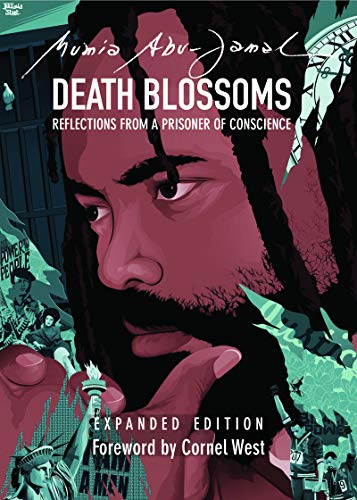What do you think?
Rate this book


Profound meditations on life, death, freedom, family, and faith, written by radical Black journalist, Mumia Abu-Jamal, while he was awaiting his execution.
During the spring of 1996, black journalist Mumia Abu-Jamal was living on death row and expecting to be executed for a crime he steadfastly maintained he did not commit—the murder of a white Philadelphia police officer. It was in that period, with the likelihood of execution looming over him, that he received visits from members of the Bruderhof spiritual community—refugees from Hitler's Germany—anti-fascist, anti-racist, and deeply opposed to the death penalty. Inspired by the encounters, Mumia hand-wrote Death Blossoms—a series of short essays and personal vignettes reflecting on his search for spiritual meaning, freedom, and truth in a deeply racist and materialistic society.
Featuring a new introduction by Mumia and a report by Amnesty International detailing how his trial was "in violation of minimum international standards," this new edition of Death Blossoms is essential reading for the Black Lives Matter era, and is destined to endure as a classic in American prison literature.
Praise for Death Blossoms, Expanded Edition:
"For years in my classrooms I have watched Death Blossoms do its luminous work. It has awakened the conscience of so many of my student readers. … From streets to classrooms and back, Death Blossoms keeps opening up consciences, hearts, and minds for our revolutionary work."—Mark Lewis Taylor, Professor of Theology and Culture at Princeton Theological Seminary, and author of The Theological and the Political: On the Weight of the World
"Targeted by the FBI's COINTELPRO for his revolutionary politics, imprisoned, and sentenced to death, Mumia found freedom in resistance. His reflections here—on race, spirituality, on struggle, and life—illuminate this path to freedom for us all."—Joshua Bloom, co-author with Waldo E. Martin Jr. of Black Against Empire: The History and Politics of the Black Panther Party
"In this revised edition of his groundbreaking work, Death Blossoms, convicted death row prisoner Mumia Abu-Jamal tackles hard and existential questions, searching for God and a greater meaning in a caged life that may be cut short if the state has its way and takes his life. … If there is any justice, Mumia will prevail in his battle for his life and for his freedom."—Lara Bazelon, author of Rectify: The Power of Restorative Justice After Wrongful Conviction
"Mumia Abu-Jamal has challenged us to see the prison at the center of a long history of US oppression, and he has inspired us to keep faith with ordinary struggles against injustice under the most terrible odds and circumstances. Written more than two decades ago, Death Blossoms helps us to see beyond prison walls; it is as timely and as necessary as the day it was published."—Nikhil Pal Singh, founding faculty director of the NYU Prison Education Program, author of Race and America's Long War
"For over three decades, the words of Mumia Abu-Jamal have been tools many young activists have used to connect the dots of empire, racism, and resistance. The welcome reissue of Death Blossoms is a chance to reconnect with Abu-Jamal's prophetic voice, one that needs to be heard now more than ever.
249 pages, Kindle Edition
First published January 1, 1996